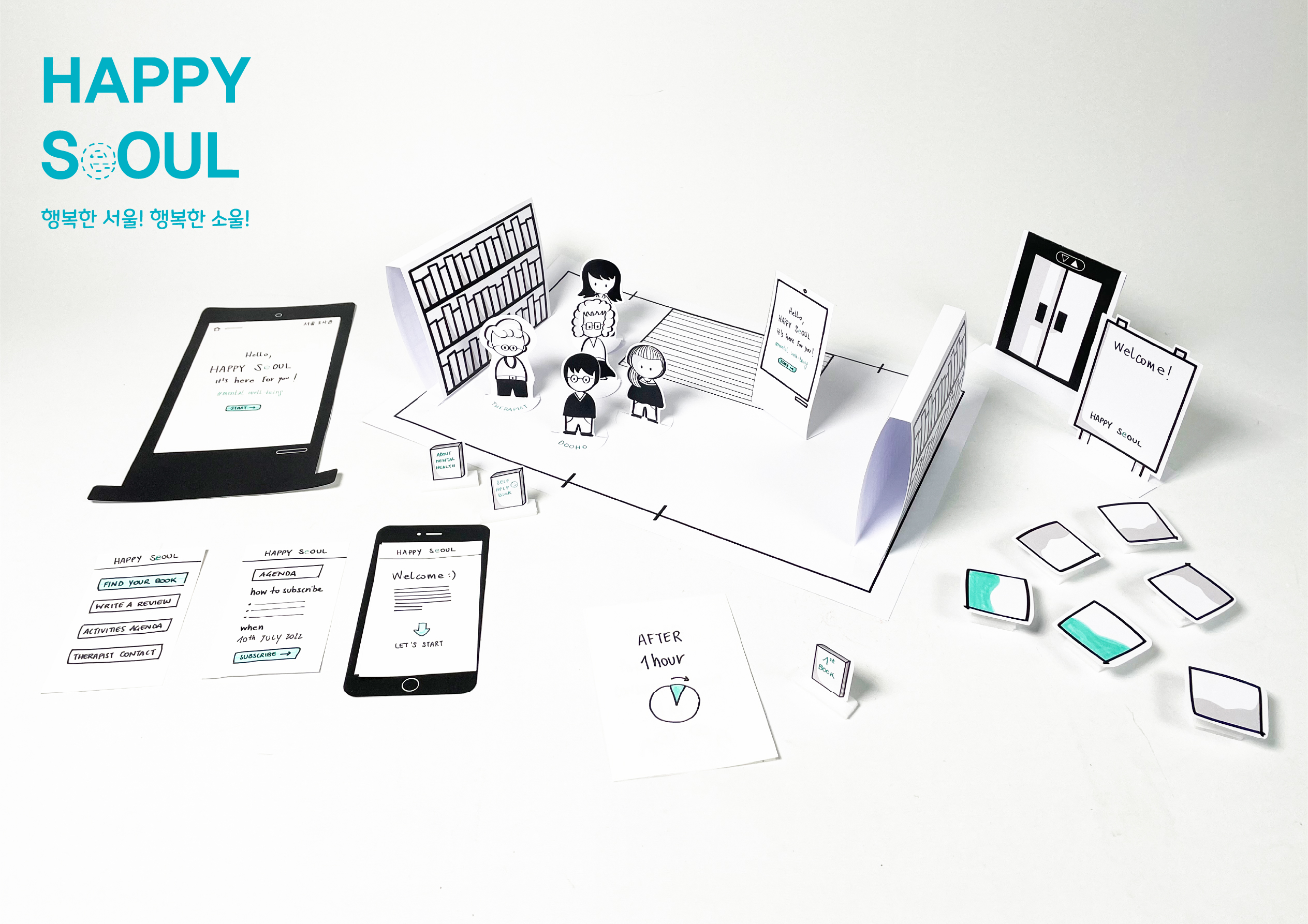| DURATION | 2022.03-2022.09 |
| ROLE | Ideation, Data Collection & Analysis, Service Design |
| COLLABORATORS | Librarians from the Seoul Metropolitan Library, Students from Politecnico de Milano |
| TARGETS | Young Adults who Start Work for the First Time after Graduating (aged 24-30) |
| DESIGN TOOLS | Crazy 8’s, SCAMPER, Mood Board, Story Board, System Maps, Blue Print, Co-design Workshop, Service Prototyping |
BACKGROUND. The librarians from Seoul Metropolitan library wanted to make their services more relevant to the younger generation by tackling social problems through resources. Our team aimed to explore and suggest solutions to mental health issues faced by young people by fully utilizing Seoul Metropolitan Library’s resources.
DESIGN CHALLENGES. Semi-structured interviews were conducted with six young adults living in Seoul to understand their daily lives, mental health issues, and perceptions of public libraries. Through this, we discovered that young adult participants had the misconception that mental health issues should be resolved on their own and felt barriers to accessing mental health services, leading to an inability to address their problems.
DESIGN OPPORTUNITIES. To fully utilize Seoul Library’s resources to help young adults understand their own mental health and empower them to confront the social stigma surrounding mental health issues.
DESIGN APPROACH/PROCESS. Various design tools were used to concretize the service. In particular, a co-design workshop was conducted with Seoul Metropolitan Librarians to reflect the resources that the library could provide and the needs of the librarians in the design results.
DESIGN CONCEPT. Happy Seoul, a personalized bibliotherapy service, recommends Self-Help books for mental health issues that visitors may encounter in their daily lives based on their mental health data. Users take a psychological questionnaire provided by the library and are recommended a ‘specific section’ where there are books suitable for them. Visitors can communicate online with people who are facing similar mental problems through the Happy Seoul app and can even continue to have direct meetings with mental health professionals. In addition, when they realize that their problem is serious, they can receive help from mental health professionals through the library.
DESIGN EVALUATION. A service usage and satisfaction survey was conducted on young adults regarding the service prototype video and demonstration, and it received positive feedback. Respondents stated that it would be helpful in lowering the barriers to accessing mental health services, but some respondents expressed concerns about their privacy.
DESIGN IMPACT. Participated in the Seoul Design Governance project hosted by Seoul and received the mayor’s prize.
LESSONS LEARNED. Despite diverse backgrounds, the team overcame communication challenges through collaboration. Sufficient time for co-design workshops and maintaining participant relationships are key to success.
